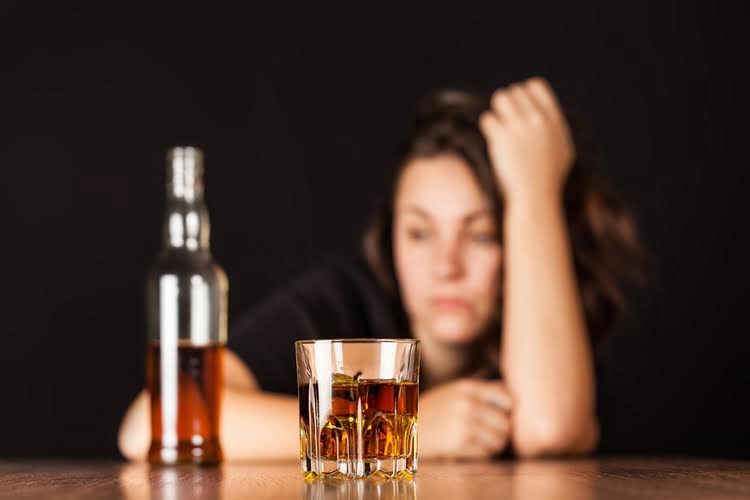If you’re like most drinkers, you’ve likely surrounded yourself at some point with a group of people who also drink. I’d argue that many of us gravitated to a group of friends who have drinking habits that align with our own, and we did this because we didn’t want sober friends. If you struggle with drinking or struggling to maintain your recovery from alcohol addiction, The Recovery Village Drug and Alcohol Rehab can help. Generally, at the very least, a relapse likely means that you need additional support while in recovery, also known as aftercare. Aftercare can consist of sober living houses, 12-step programs and ongoing therapy.
These help keep you focused on your recovery, reducing your risk of relapse. Alcohol addiction experts have long been aware that stress increases the risk of alcohol relapse. One of the reasons for this is that stress can increase the risk of low mood and anxiety, which in turn are linked to alcohol cravings. The longer an alcoholic stays sober, the better their chances are for long-term sobriety. Overall, among people sober for five years, the chances of relapsing are less than 15%, according to Psychology Today. Some clinicians will divide this stage of relapse into a lapse and then the actual relapse.
Ready To Be Done Drinking? Here Are 5 Steps To Quit Alcohol For Good
Spending sober time becoming familiar with your body intimately can help you better communicate your needs to someone else when you feel ready for that step. That being said, you might not be at a place where you https://g-markets.net/sober-living/alcohol-tolerance-wikipedia/ want people to know you’re not drinking, and that’s OK. You can provide an excuse, like that you’re on antibiotics, or you aren’t feeling great or want to feel fresh for something you have going on the next day.

“Anxiety, dizzy, no sleep, exhausted. Does anyone ever feel like an electric current sometimes runs through your body? But it’s getting better every day.” “Fortunately, not near the hell the first three [days] were. I am hoping that means I may finally sleep tonight. For me, the toughest parts are the vomiting (dry heaves), insomnia, and anxiety.” “The third day sober feels like I’m in a big black hole and under great pressure—hard to breathe, future feels bleak, lost an old trusted friend in alcohol, can’t find an alternative.” “I had to miss work again because I didn’t sleep again. I have had sweat pouring off me all day, I’m shaking so bad, and my chest is hurting. I know if I drink it will go away, but then nothing gets better, I feel like I’m going to die right now.” “I’m shaky, jumpy, and anxious today. I’m really afraid of how I’ll feel tomorrow as I can’t miss work, but I know I have to do this. I can’t imagine that I won’t have a bad withdrawal, given the high volume of alcohol I’ve been consuming on a daily basis.”
Things That Inevitably Happen to Your Personal Life When You Get Sober
If you experience a physical relapse, you might need to return to treatment or revisit your relapse prevention plan. Treatment didn’t fail, and you didn’t either, but a physical relapse can mean that your treatment plan may need to be adjusted or evolve with your changing needs. People will often go through treatment and have a period of sobriety.
Cali sober: using cannabis when addicted to alcohol or opioids – STAT
Cali sober: using cannabis when addicted to alcohol or opioids.
Posted: Tue, 30 May 2023 07:00:00 GMT [source]
You may also experience what is commonly called sobriety fatigue, which refers to the overall exhaustion that may occur as a result of the emotional and physical stress of staying sober. So, it’s extra helpful to have a support network available to you when you need it. A therapist can help you learn new coping skills, develop new thinking patterns, and address any co-occurring mental health How To Build Alcohol Tolerance: The Best Tips From Real Experts conditions that may make recovery more difficult. Post-acute withdrawal syndrome (PAWS) involves experiencing withdrawal symptoms that persist past the detox period. Such symptoms are often related to mood and may include irritability, anxiety, depression, sleep problems, and fatigue. It may help to pick a quit date, or a day when you choose to discontinue use of alcohol or drugs.
Alcohol withdrawal symptoms
This is due to the changes in their brain chemistry due to their drinking. As with other chronic diseases, alcohol use disorder has treatment options and can be managed. After not drinking for a while, the body can’t process alcohol the same way, and the drinker’s tolerance lowers. This means that the tolerance the drinker used to have is much lower from not drinking.